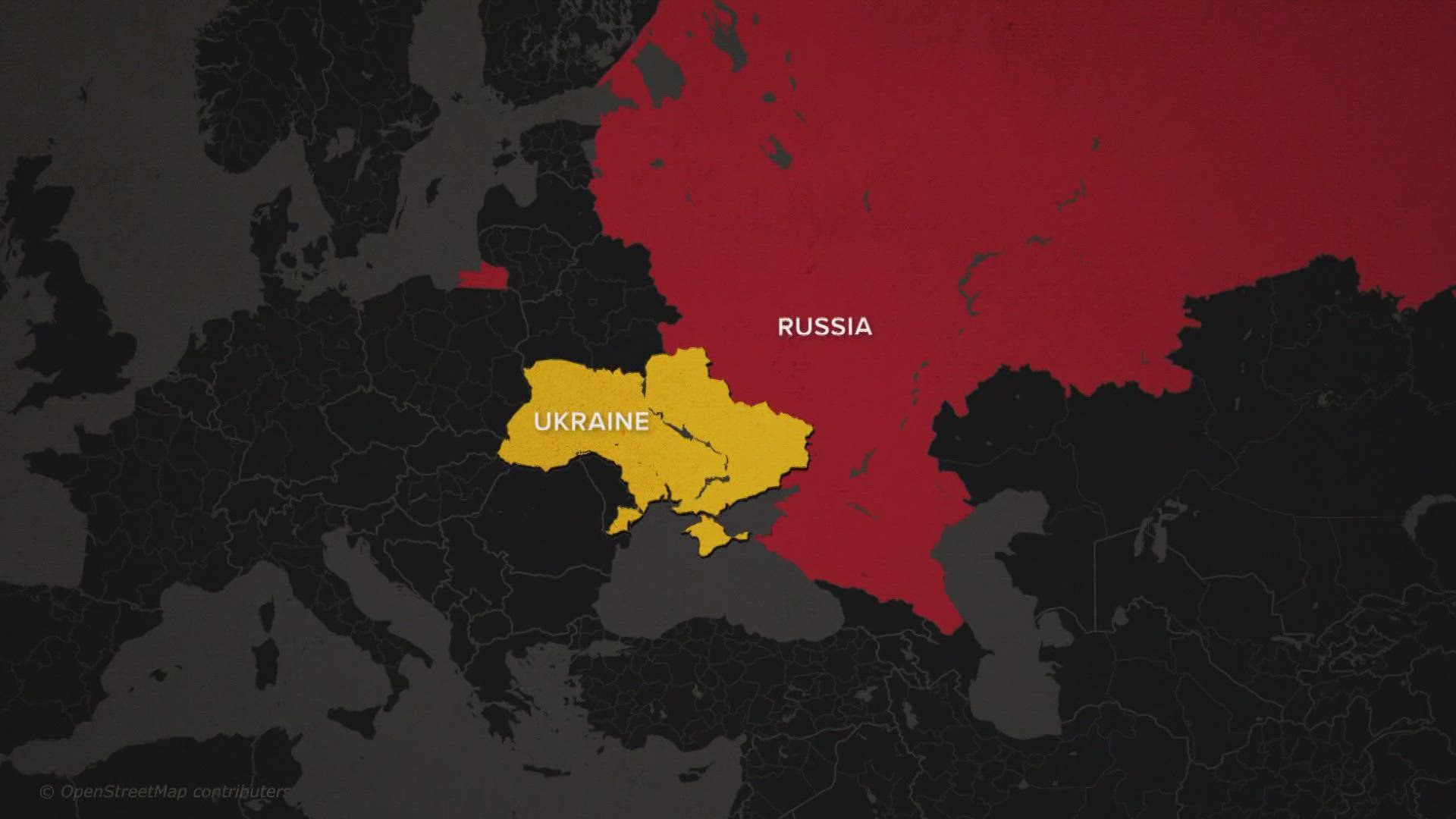SEATTLE — After Russia launched a full-scale invasion of Ukraine, there are a lot of questions about why it happened and what the role of the United States will be in an imminent war.
We break down three of the top questions people in Washington state are asking about the crisis in Eastern Europe.
Why is Russia attacking Ukraine?
In President Joe Biden's words Thursday, Russian President Vladimir Putin wants to reestablish the former Soviet Union.
Putin has expanded the Russian empire before, most notably in 2014, when he annexed Crimea from the southern part of Ukraine. This, his critics say, is the next logical step.
Another reason is to keep Ukraine from joining the North Atlantic Treaty Organization or NATO, which was established after World War II to prevent aggressive escalation by any world power. Experts say Putin sees the expansion of NATO as a threat to post-Soviet Russian influence. If Ukraine were to join, it would further encroach NATO boundaries on Russia and could give Ukraine more resources to take back Crimea.
Ukraine has said it intends to join NATO, although political destabilization over the last decade tabled those discussions.
Putin, on the other hand, has said the invasion is meant to protect citizens in eastern Ukraine, some of whom live in the pro-Russian separatist areas of the country.
Are the U.S. and Ukraine allies?
Yes, the U.S. has multiple partnerships with Ukraine and supports them with hundreds of millions of dollars annually in military aid, as the U.S. does with many other countries.
However, since Ukraine is not a member of NATO, that means the U.S. does not have an obligation to defend Ukraine like it would other NATO allies. Ukraine is a NATO partner country, but it doesn’t get all the benefits of NATO counties.
Will Russia attack the U.S.?
That’s extremely unlikely, as former NATO advisor John Koenig explained, because the mutual risk is too high.
"The high end of escalation is nuclear war,” said Koenig, who is now a professor at the University of Washington. “So, we have got to proceed with a lot of caution with regard to direct military engagement. I don't think that's what we would choose."
Diego Mendoza contributed to this report.

